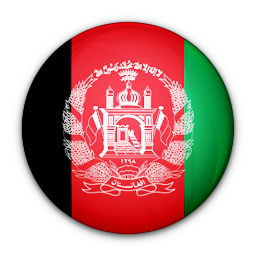As Pakistan conducts its first census in 20 years, the presence of Afghan refugees in the country has caused controversy. There are concerns throughout the country that the census will show a major change in the country’s demographics leasing to the restructuring of the legislature and voting constituencies.
These concerns have particularly taken hold in Balochistan, a province in the southwestern part of Pakistan which historically has seen a majority of the Baloch ethnicity.
A major political party the Baloch National Party (BNP) has expressed reservations about the presence of Afghan refugees in the province, especially those who had illegally obtained Pakistani identity cards, deeming them citizens.
This suspicion of the refugees illegally posing as citizens is not unfounded. The issuance of fake identity cards has been recognized by the government and has been under investigation since 2013. Till last year the Pakistani government had cancelled 95, 959 identity cards thought to be fake.
“If a census is held now, the Baloch will be recorded as a minority when they are the natives of Balochistan,” said Mir Hasil Khan Bizinjo, president of Balochistan National Party, who is also the federal minister for Ports and Shipping, in a press conference last year.
BNP has been opposed to the settlement of Afghan refugees in the country since they first arrived in the 1980s.
When the BNP’s demand fell on deaf years in the legislature they took to the court and submitted a petition to the Balochistan High Court, asking for the census to be stopped till all Afghan refugees had been returned to Afghanistan.
The court heard the case for over a month, and just a day before the census was to start ordered the government to not include Afghan refugees in the census. They said the census, though would be conducted as planned.
The document submitted to the High Court highlights two main concerns, the first one is, “the presence of 40, 00, 000 Afghan Refugees as well as blocked ID cards and ID cards marked as suspect.” This refers to a larger program where Afghan refugees have obtained Pakistani identity cards by bribing officers in the issuing authority, NADRA. The Pakistani government has been investigating the matter and revoking card issues illegally.
It also points to displacement of people from the province saying, “…thousands of Baloch citizens have migrated to other parts of the country.” They proposed the creation of a separate column to determine whether an individual is an IDP to determine which area of the country they were coming from. The party wanted to determine the number of Baloch IDPs.
Mir Muhammad Talpur, part of the Baloch rights movement in Balochistan but not associated with BNP says he understands the stance of the party is taking.
“The Baloch have very little say in the politics of the country,” he said. He pointed to the fact that very few Baloch held any important portfolios in the government. Muhammad Khan Achakzai, the present Governor of Balochistan is pashtun and belongs to the Pakhtunkhwa Milli Awami Party. Talpur also points to the elections in 2013 saying Achakzai’s party won from areas which had previously been Baloch strongholds.
Both parties are divided on ethnic lines, where BNP represents the Baloch population, while Awami party largely represents the Pakhtun population.
Talpur says it makes little sense for the government to include them in the census considering it ultimately wants them to go back to Afghanistan. “Even from a planning and development point of view it doesn’t make sense because they will be sent back to Afghanistan,” he said adding that the government should hold a separate census to account for the number of refugees instead of including them in the general census.
Other political parties in the province such as the Pakhtunkhwa Milli Awami Party though have asked the government to not send back Pakhtuns who have been living in the country for decades now.
Both parties are divided on ethnic lines, where BNP represents the Baloch population, while Awami party largely represents the Pakhtun population.
UNHCR and the Pakistani government have previously carried out two censuses before to determine the number of Afghan refugees in the country. The first census took place in 2005. Proof of registration cards were issued to refugees who had themselves registered with UNHCR.
The second census took place in 2011. The purpose of the censuses was to register Afghan refugees and issue a plan for repatriation.
The bureau of statistics which is responsible for conducting the census has said that they will be including all foreign national present in the country. Afghan refugees, will fall under this category.
